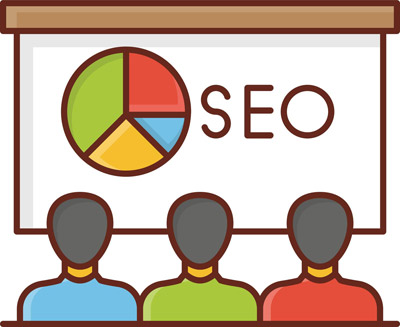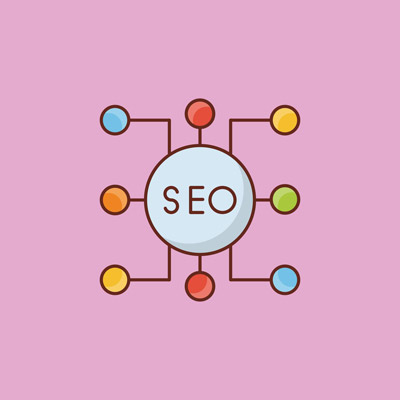| SEO Term: |
Description: |
| Search Engine Optimization (SEO) |
SEO is crucial for digital marketing as it helps improve a website's visibility and organic search rankings on search engine results pages, leading to increased traffic and potential customers. |
| SEO |
SEO encompasses various strategies and techniques aimed at optimizing websites to rank higher in search engine results, allowing businesses to attract more organic traffic and gain a competitive edge in the online market. |
| Search Engine |
Search engines like Google, Bing, and Yahoo play a vital role in driving organic traffic to websites. Understanding how search engines work and optimizing content accordingly is essential for achieving online visibility and reaching target audiences. |
| Webmaster |
Webmasters are responsible for managing and maintaining websites. Their knowledge of SEO practices helps ensure websites are optimized, user-friendly, and technically sound, contributing to better search engine rankings. |
| Internet Marketing |
Internet marketing involves promoting products or services online. Implementing effective SEO strategies within internet marketing campaigns is crucial for reaching and engaging with the target audience, ultimately driving conversions and business growth. |
| Online Marketing |
Online marketing refers to the promotion of products or services through digital channels. SEO plays a significant role in online marketing by increasing website visibility, driving organic traffic, and enhancing overall marketing performance. |
| Analytics |
Analytics provides valuable insights into website performance, user behavior, and marketing effectiveness. Utilizing SEO analytics helps digital marketers make data-driven decisions and optimize strategies for better search engine rankings and audience engagement. |
| Link Building |
Link building involves acquiring high-quality backlinks to a website. It is an important SEO practice as search engines consider relevant and authoritative links as signals of credibility, improving search rankings and driving referral traffic. |
| Social Media |
Social media platforms are powerful channels for promoting content and engaging with audiences. Incorporating SEO principles into social media strategies helps boost organic visibility, attract targeted traffic, and improve overall online presence. |
| Content Marketing |
Content marketing focuses on creating and distributing valuable, relevant, and consistent content to attract and retain a clearly defined audience. SEO ensures that content is optimized for search engines, enabling it to rank higher and reach a wider audience. |
| Keyword Research |
Keyword research is the process of identifying the terms and phrases people use when searching online. Conducting thorough keyword research helps optimize content, improve search rankings, and align marketing efforts with user intent. |
| On-Page SEO |
On-page SEO involves optimizing various elements within a webpage to improve its visibility in search engine results. This includes optimizing content, meta tags, headings, and URL structures, leading to better search rankings, |
| Off-Page SEO |
Off-page SEO refers to optimization efforts that occur outside of the website itself, such as link building and social media promotion. These activities enhance a website's online reputation, authority, and visibility, leading to improved search rankings. |
| Technical SEO |
Technical SEO focuses on optimizing the technical aspects of a website to improve its crawlability, indexability, and overall performance. Implementing technical SEO practices ensures that search engines can access and understand the website's content, resulting in better rankings. |
| SEO Audit |
An SEO audit is a comprehensive evaluation of a website's SEO health. It helps identify strengths, weaknesses, and opportunities for optimization. Conducting regular SEO audits enables businesses to enhance their online presence and maintain a competitive edge. |
| SEO Tools |
SEO tools provide insights, analysis, and automation to optimize websites for search engines. These tools assist in keyword research, rank tracking, backlink analysis, and technical SEO audits, empowering digital marketers to make data-driven decisions and improve their SEO strategies. |
| Google |
Google is the most popular search engine worldwide, with a dominant market share. Optimizing websites for Google's algorithms and search results is vital for achieving high visibility and attracting organic traffic from this search engine giant. |
| Bing |
Bing is a search engine owned by Microsoft. While it has a smaller market share than Google, it still serves as a valuable platform for reaching a diverse audience. Incorporating Bing optimization strategies alongside Google can expand a website's reach and increase overall search traffic. |
| Yahoo |
Yahoo is another well-known search engine that provides search results and online services. While its market share has declined over the years, it still attracts a significant user base. Optimizing for Yahoo can contribute to broader visibility and potential traffic diversification. |
| Search Traffic |
Search traffic refers to the visitors a website receives through search engine results. By implementing effective SEO strategies, businesses can increase their search traffic, allowing them to reach a larger audience and generate more leads or sales. |
| Keywords |
Keywords are specific words or phrases that users enter into search engines when looking for information. Properly incorporating relevant keywords into website content helps improve search rankings and ensures the website aligns with user search intent. |
| Traffic |
Traffic refers to the number of visitors a website receives. SEO plays a crucial role in driving organic traffic by improving search engine visibility and attracting targeted audiences who are more likely to engage with the website's content or offerings. |
| Search Results |
Search results are the listings displayed by search engines in response to a user's query. By optimizing websites for search engines, businesses can increase their visibility within search results, improving their chances of attracting relevant traffic and potential customers. |
| Users |
Users are the individuals who visit and interact with a website. Understanding user behavior and intent is crucial for effective SEO and digital marketing. By optimizing a website to meet user needs and expectations, businesses can improve engagement, conversions, and overall success. |
| Websites |
Websites are online platforms that businesses use to showcase their products, services, or information. Implementing SEO techniques on websites helps improve their visibility, attract organic traffic, and enhance user experience, resulting in higher conversions and business growth. |
| Visibility |
Visibility refers to how easily a website can be found by users in search engine results. SEO aims to enhance a website's visibility by optimizing its content, structure, and other factors to increase its chances of ranking higher and attracting organic traffic. |
| User Experience |
User experience (UX) focuses on providing visitors with a positive and intuitive experience on a website. Incorporating SEO principles into UX design ensures that websites are easily navigable, mobile-friendly, and fast-loading, leading to higher user satisfaction and better search rankings. |
| Strategy |
An effective SEO strategy is essential for achieving long-term success in digital marketing. It involves planning and implementing various SEO techniques, such as keyword targeting, content optimization, and link building, to improve search rankings, attract traffic, and meet business goals. |
| Ranking |
Ranking refers to the position of a website in search engine results pages (SERPs). Higher rankings indicate greater visibility and credibility. SEO helps optimize websites to improve their rankings, leading to increased organic traffic and higher chances of user engagement. |
| Branding |
Branding involves creating a unique and memorable identity for a business. SEO contributes to branding by increasing a website's visibility, attracting relevant traffic, and establishing authority and trust with users. Consistent branding and strong online presence contribute to business growth. |
| Competition |
Competition in the online market is fierce. Effective SEO allows businesses to stay ahead of their competitors by improving search rankings, attracting targeted traffic, and establishing a competitive advantage. Continuous monitoring and adapting to competitors' strategies are also crucial. |
| Authority |
Authority refers to a website's credibility and expertise in a particular niche. SEO helps build authority by creating high-quality, relevant content, earning authoritative backlinks, and providing a positive user experience. Increased authority leads to better search rankings and user trust. |
| Indexing |
Indexing is the process search engines use to analyze and store information from websites. SEO ensures that search engines can properly crawl and index a website's pages, making them eligible to appear in search results. Proper indexing is essential for a website's visibility and discoverability. |
| Algorithm |
Search engine algorithms are complex systems that determine the ranking and relevance of webpages in search results. SEO professionals stay updated with algorithm. |

 Are you a small business looking for an edge? An advantage to help you compete with larger, established players? It might be easier to find than you think, and it could make all the difference in unlocking your business potential. We're talking about the power of SEO and why it is especially important for small businesses.
Are you a small business looking for an edge? An advantage to help you compete with larger, established players? It might be easier to find than you think, and it could make all the difference in unlocking your business potential. We're talking about the power of SEO and why it is especially important for small businesses. Search engine optimization (SEO) is an important element of marketing that focuses on making a website more visible and relevant in organic search engine results. SEO involves optimizing various web elements, such as page titles, meta descriptions, and content, to ensure that they appear higher in the rankings for a given set of keywords. By using techniques like keyword research, link building, and creating content with targeted keywords, businesses can improve their visibility on search engines and drive more traffic to their websites.
Search engine optimization (SEO) is an important element of marketing that focuses on making a website more visible and relevant in organic search engine results. SEO involves optimizing various web elements, such as page titles, meta descriptions, and content, to ensure that they appear higher in the rankings for a given set of keywords. By using techniques like keyword research, link building, and creating content with targeted keywords, businesses can improve their visibility on search engines and drive more traffic to their websites. SEO is an important tool for small businesses as it can help drive website traffic and increase visibility, resulting in higher conversions and profits. The use of targeted keyword phrases helps people find your pages more easily on search engine results pages, while local SEO techniques can give your business an advantage over competitors in local searches. Employing an effective SEO strategy helps small business owners increase their market share and unlock further revenue growth potential.
SEO is an important tool for small businesses as it can help drive website traffic and increase visibility, resulting in higher conversions and profits. The use of targeted keyword phrases helps people find your pages more easily on search engine results pages, while local SEO techniques can give your business an advantage over competitors in local searches. Employing an effective SEO strategy helps small business owners increase their market share and unlock further revenue growth potential. For web design agencies, investing in good SEO has proven to generate significantly more prospects and clients than relying solely on manual marketing tactics such as attending networking events or online ads. Done correctly, SEO should act as an initial filter: filtering out the cold leads while bringing only the most relevant ones closer for consideration. When that happens, more exposure on Google translates into more qualified visitors to your website; "the higher you rank on search results pages, the more visibility" your business will have and ultimately bring in better leads for your business in the long run.
For web design agencies, investing in good SEO has proven to generate significantly more prospects and clients than relying solely on manual marketing tactics such as attending networking events or online ads. Done correctly, SEO should act as an initial filter: filtering out the cold leads while bringing only the most relevant ones closer for consideration. When that happens, more exposure on Google translates into more qualified visitors to your website; "the higher you rank on search results pages, the more visibility" your business will have and ultimately bring in better leads for your business in the long run. Once you have increased traffic to your website or online presence, and your visibility has expanded, you can reap the benefits of lead generation. Lead generation is the act of converting visitors into leads or customers by collecting contact information. This can be done through email capture forms on a business website, or other digital resources such as landing pages, social media, and online surveys. The valuable advantage here is that businesses can then nurture these leads with messaging and email campaigns.
Once you have increased traffic to your website or online presence, and your visibility has expanded, you can reap the benefits of lead generation. Lead generation is the act of converting visitors into leads or customers by collecting contact information. This can be done through email capture forms on a business website, or other digital resources such as landing pages, social media, and online surveys. The valuable advantage here is that businesses can then nurture these leads with messaging and email campaigns. In summary, if used in an effective manner lead generation helps boost a small business's conversions. As it does require additional resources (time & money) it may be difficult for some smaller outfits to deploy such methods successfully whether it be due to budget constraints or a lack of a marketing strategy/team in place. Nevertheless, companies who have access to proper resources and knowledge should strongly consider investing in lead generation as it allows high engagement with prospective customers creating greater opportunities for conversions and gaining insights from data gathered by monitoring visitor behavior on a website.
In summary, if used in an effective manner lead generation helps boost a small business's conversions. As it does require additional resources (time & money) it may be difficult for some smaller outfits to deploy such methods successfully whether it be due to budget constraints or a lack of a marketing strategy/team in place. Nevertheless, companies who have access to proper resources and knowledge should strongly consider investing in lead generation as it allows high engagement with prospective customers creating greater opportunities for conversions and gaining insights from data gathered by monitoring visitor behavior on a website. When it comes to optimizing websites for small businesses, Search Engine Optimization (SEO) is an invaluable tool. SEO plays a key role in both lead generation and marketing advantage, and by taking steps to optimize websites for search engines, small business owners can deepen their customer base and boost brand awareness. There are many SEO practices available to small business owners. Here, we will discuss the main SEO practices that should be used for small business websites, as well as provide some helpful tips.
When it comes to optimizing websites for small businesses, Search Engine Optimization (SEO) is an invaluable tool. SEO plays a key role in both lead generation and marketing advantage, and by taking steps to optimize websites for search engines, small business owners can deepen their customer base and boost brand awareness. There are many SEO practices available to small business owners. Here, we will discuss the main SEO practices that should be used for small business websites, as well as provide some helpful tips. A few tips to keep in mind when utilizing SEO practices include: making sure content is up to date and regularly updated, including meta tags with every page of the website, and focusing on quality rather than quantity when it comes to link building. Additionally, while high-ranking pages are desirable for marketing purposes, it's also important to make sure they are user-friendly in order to make navigation easy and intuitive for customers who visit the site.
A few tips to keep in mind when utilizing SEO practices include: making sure content is up to date and regularly updated, including meta tags with every page of the website, and focusing on quality rather than quantity when it comes to link building. Additionally, while high-ranking pages are desirable for marketing purposes, it's also important to make sure they are user-friendly in order to make navigation easy and intuitive for customers who visit the site. Small businesses can experience a wide variety of benefits from SEO, including increased visibility and recognition in online search results, brand building, increased traffic to their website, better customer acquisition, improved engagement with customers, and higher rankings in organic search engine results.
Small businesses can experience a wide variety of benefits from SEO, including increased visibility and recognition in online search results, brand building, increased traffic to their website, better customer acquisition, improved engagement with customers, and higher rankings in organic search engine results. 1. Establishing a strong keyword strategy - Building a keyword database, analyzing related terms or phrases, and researching competitors' keywords is a great way to drive organic search traffic to the website. The better the keywords match customer intent and product offerings, the more leads will be generated.
1. Establishing a strong keyword strategy - Building a keyword database, analyzing related terms or phrases, and researching competitors' keywords is a great way to drive organic search traffic to the website. The better the keywords match customer intent and product offerings, the more leads will be generated.